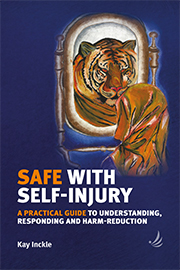Does baking have a purpose beyond creating delectable goods? Recent discussions suggest baking may be a great way to improve mental health. If you’re a baker, you might already feel the therapeutic benefits of baking. If not, this post might want to make you try!
Are you going to bake on the long weekend? Random question, you say? Not so random, actually – there has recently been quite a bit of discussion about whether baking can improve mental health. As someone who likes to bake and is interested in increasing awareness of mental health, I have found myself very engaged in this discussion. I have also been thinking of all the times I’ve turned to baking to fill my time and head. There is definitely something about watching muffins rise in their cases through the oven glass, flipping and punching dough for bread has its own charm and nothing beats the satisfaction of turning out a perfectly moist dark chocolate cake out of its tin.
 Hungry now? There’s more to this than meets the eye. John Whaite, winner of last year’s Great British Bake Off, who was diagnosed with manic depression, says: “When I’m in the kitchen, measuring the amount of sugar, flour or butter I need for a recipe or cracking the exact number of eggs – I am in control. That’s really important as a key element of my condition is a feeling of no control.” Manic depression, or bipolar disorder, is characterised by dramatic mood swings and, if extreme, can lead to distortions in perception and impairment in social functioning.
Hungry now? There’s more to this than meets the eye. John Whaite, winner of last year’s Great British Bake Off, who was diagnosed with manic depression, says: “When I’m in the kitchen, measuring the amount of sugar, flour or butter I need for a recipe or cracking the exact number of eggs – I am in control. That’s really important as a key element of my condition is a feeling of no control.” Manic depression, or bipolar disorder, is characterised by dramatic mood swings and, if extreme, can lead to distortions in perception and impairment in social functioning.
Recently, banking on and furthering this discussion, a mental health charity set up pop-up shops in a few spots called the ‘Depressed Cake Shops’. The stalls sold only grey cakes and were used as a medium to raise awareness about mental health. Melanie Denyer, the host of London’s Depressed Cake Shop in Brick Lane, says: “For a lot of us involved in this project, mental illness and baking are linked. A lot of us turn to baking when we’re feeling low. Some of us even started baking because they were ill and needed something simple as a focus. And there is genuinely something very therapeutic about baking.” Melanie was diagnosed with Borderline Personality Disorder and says baking has, at times, provided her an alternative to self-harm.
Huma Qureshi, a freelance journalist, has written about the link between mental health and baking too. She herself found baking therapeutic in the days after her dad died. Her way of dealing with bereavement was by focusing on dough, biscuits and wafer-thins. Personally, I have found baking to be a great way to occupy my mind and keep me from thinking about things that may make me unhappy. I love reading too, but reading just doesn’t help me in the same way as baking does. Perhaps, it’s the physical labour I have to put in and the feeling of having a (delicious) tangible end product in hand that makes baking seem like the perfect remedy for all the times I’m feeling low. And then of course there is the joy of sharing it with others and being appreciated.
Of course, baking is a therapy in so much that it can provide something to focus on, to keep busy and be completely involved in. So, if baking is not your thing, there’s cooking, gardening, painting, running and so on. Now that the long weekend’s arrived, it’s time to try at least one of those!
Tell us how you get on with it in the comment box below, or email Equality.and.Diversity@lse.ac.uk.




